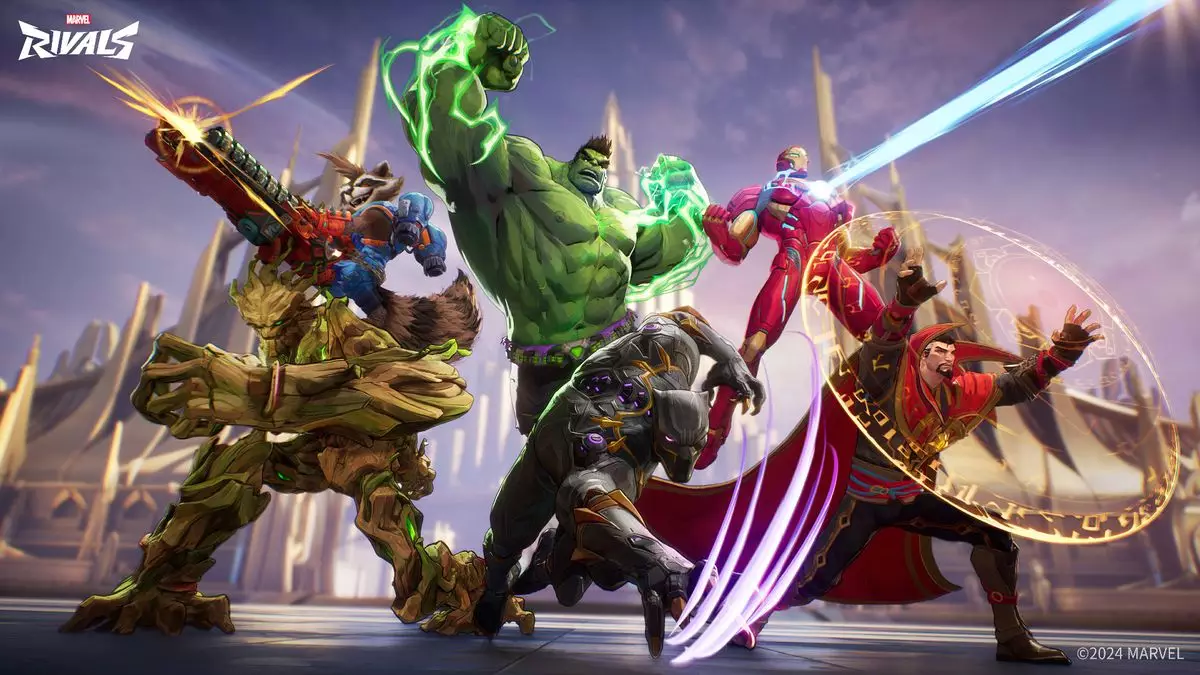The Marvel Rivals meta—a dynamic battlefield filled with iconic characters—often leaves players in the throes of frustration as they grapple with the game’s complexities. Recent insights from an astute Reddit user, known as Aggragating_Job9976, have shed light on the prevailing misconceptions surrounding hero effectiveness in the game. Without your average casual fan’s assumptions clouding judgment, this analysis draws on rigorous statistical examination to challenge commonly accepted notions about character utility and performance.
In most gaming experiences, especially in multiplayer shooters, the narrative usually revolves around a handful of powerful characters. Players often fixate on prominent powerhouses like Hulk and Iron Fist, assuming these tanky heroes dominate matches. However, Aggragating_Job9976’s deep dive into the statistics unveils a startling reality: these famous figures are not exactly the titans they appear to be.
Aggragating_Job9976’s methodology was meticulous and thorough. The tier rankings were built on the analysis of the TOP500 players’ performances, with the underlying data fostering a nuanced understanding of character strengths. By collating over 600 rows of gameplay data, the analyst ensured that both popularity and effectiveness were considered, although caveats emerged when some players opted for privacy settings that hid vital information.
Their rigorous approach took into account not merely the raw win ratios but also the pick rates of each character. This marriage of statistics serves a dual purpose: it shows how often characters are selected by the best players and reflects the potential for success that lower-ranked players might derive from those same heroes. It is easy to rely solely on sheer win percentages, yet the weighted importance of these stats offers a more profound look at hero viability.
One of the most compelling aspects of Aggragating_Job9976’s analysis centers on the distinction between pick rates and win rates. Heroes such as Doctor Strange, who boasts a 64.6% win rate across a formidable sample of 2,900 games, emerge as top-tier contenders. Conversely, Peni Parker, while enjoying a high win rate of 70.5%, comes from a comparatively limited gameplay base of only around 400 games. This raises a fundamental question: does early success in fewer matches equate to a reliable representation of a hero’s potential?
This insight underscores the danger of drawing broad conclusions from limited data. Aggragating_Job9976 advocates for a comprehensive view that includes character selection frequency as indicative of their reliability and potential for success within high-stakes matches. The result is an enhanced understanding of the game’s meta, where heroes with lower individual win percentages might still possess considerable clout simply by virtue of their popularity among skilled players.
In the tier list attributed to Aggragating_Job9976, surprise abounds. The notorious Iron Fist, often perceived as overwhelming in combat, surprisingly lands in a respectable B rank. This shows how player perception can often be at odds with statistical reality. Heroes like The Punisher and Rocket Raccoon achieve notable A-tier rankings, consolidating their roles as viable options for players on the rise.
Yet it must also be pointed out that hero rankings can mislead. As highlighted by the shadowy placement of Scarlet Witch in the D tier, player choice does not always resonate with effectiveness. Such discrepancies invite further exploration into each character’s strengths and weaknesses, calling for reflective analysis well beyond the typical play experience.
Ultimately, the findings presented by Aggragating_Job9976 not only crystallize the importance of analytical thinking in competitive gaming but also underscore the prevalent psychological barriers players confront when selecting heroes. It’s easy to gravitate to perceived favorites or characters strongly associated with success, but what the data elucidates is a deeper truth: real skill can manifest in less expected heroes when wielded by those who understand their intricacies.
Embracing such revelations can revolutionize the Marvel Rivals gameplay experience for many—inviting players to rethink their strategies and character choices, thereby enriching their competitive spirit. As it stands, the numbers tell a fascinating story, one where even long-held beliefs about winning heroes can be turned on their heads.

